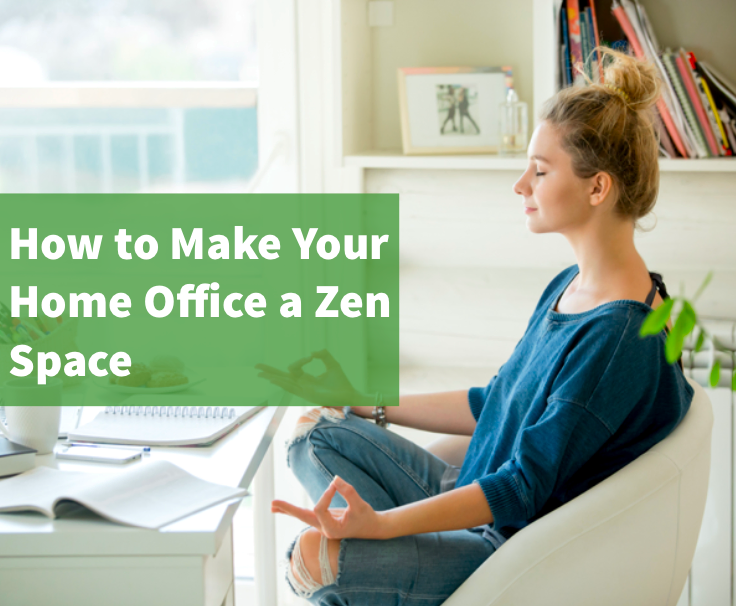Since March, millions of Americans have been working from home to socially distance and limit exposure to the COVID-19 virus. While some of us will eventually go back to the office, there’s no question that today’s work environment has changed significantly. Remote work is now seen as a viable, everyday option rather than a last resort. Workers will continue to have more flexibility to work from home if they want to, and some may never go back to the office again.
What are the advantages of working from home?
As more people have gone remote, they have discovered some incredible aspects of working from home.
- A much shorter commute time: The average American spent 225 hours commuting in 2019. That is equal to more than nine full days each year. Long commute times contribute to stress and other health risk factors, increase gas and additional transportation costs, and reduce the amount of time workers can spend with their families.
- More scheduling flexibility: Many remote work opportunities don’t require employees to come in at nine and leave at five every day. Instead, they focus on outcomes and results. If someone can stay as productive at home as they did in the office, they may have more control to manage their schedules, which can significantly improve their work-life balance.
- Working from home means you can work anywhere: Remote jobs provide more geographic freedom for employees. They may no longer be bound by where they live to apply for a job. This is especially advantageous for candidates who live in rural areas where jobs may be scarce. Remote work also allows people to move to locations that may be more affordable or closer to family. They no longer have to move somewhere just because they want to work for a specific company or industry.
But is there a downside to working from home?
These and other aspects of working from home can increase overall employee satisfaction and general well-being, but we are also learning that many remote workers are struggling. According to a survey conducted by FlexJobs and Mental Health America (MHA), 75% of those surveyed reported that they experienced burnout during the year. 40% said it was the direct result of the pandemic.
The most commonly cited complaints were that they were working longer hours, and they couldn’t meaningfully connect with others. Employers can do more to help their workers who are struggling by providing access to mental health resources, encouraging employees to use video conferencing software to collaborate and socialize as they would in the office, and regularly checking in to identify issues before they become problems.
And employees do have more control to create an environment suitable to get work done. Let’s talk about ways you can make your home office more zen to you.
Home office organization tips for zen
“A dramatic reorganization of the home causes correspondingly dramatic changes in lifestyle and perspective. It is life-transforming.” Marie Kondo
When we say zen, we do not necessarily refer to the Buddhist tradition exactly, but it is undoubtedly the inspiration for our definition. We are talking about the qualities that Zen Buddhist practitioners may exemplify: calmness, peace-of-mind, and being in the present. How you organize your home office can significantly improve your mood and productivity.
If you set your office in a high-traffic area where people go in and out, blast the television as you work, or allow clutter to build up on your desk, it’s probably going to impact how well you can work and how you feel. Here are some ways to create a more relaxing home office to do your best work and avoid burnout.
Lose the clutter
Having papers, books, and tech equipment everywhere not only makes you look disorganized; it could make you feel more anxious and overwhelmed. Layout your desk in a way where you can access anything you need pretty quickly and always end the day by organizing your desk for tomorrow. You will save a lot of time and energy and avoid losing it because you can’t find something that’s hidden under a stack of papers and toys.
Listen to a playlist or something comforting
Working from home can be lonely. Engage your mind by playing classical music, an old favorite movie, white noise, or anything else that won’t distract you from your work but still provide some comfort. On the other hand, ban any electronics that will take you away from your work when you need to be productive.
Bring nature into your home office
Add a plant or two to your office to liven up your space and provide much-needed oxygen when the air gets stuffy. You don’t want to add anything too maintenance-intensive, but plants can create a more inviting space, especially during the colder months when you might not go outside as often.
Find a well-lit area
Natural light with plenty of sunlight is optimal, but if you have to invest in a quality desk lamp to brighten your home office, no problem. As the days are getting shorter, seasonal affective disorder may become an issue. Light therapy lamps are the best way to combat seasonal affective disorder, and they are relatively affordable.
Invest in ergonomics
Take care of your lower back. A poor quality chair can affect your posture, cause you to fidget to try to get comfortable, and deplete your productivity. Contact your supervisor to see if the company could provide you with an ergonomic chair. If that’s not an option, you can adjust your desk’s height to improve your posture or get a seat cushion. Also, remember to take frequent breaks to stretch and take the strain off your back.
Personalize your office space
When you worked in an office, did you keep photos or other mementos to remind you of home? Even though you are at home, now is not the time to be boring or bland. Surround yourself with photos, figures, or anything that makes you happy. Make your office space unique to you, and we promise you’ll feel better when you go to work, even if it’s a few feet away from your kitchen.
Keep these tips in mind as you plan and design your home office. And remember, if you are buying a home or refinancing, EMM Loans can help you stay zen throughout the lending process.









